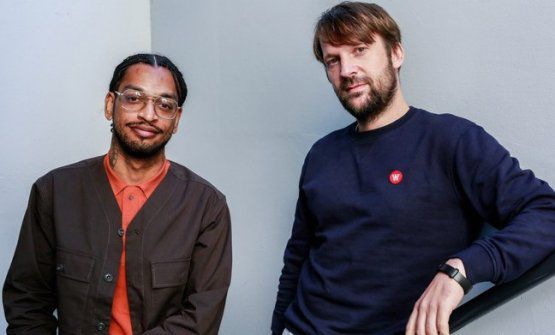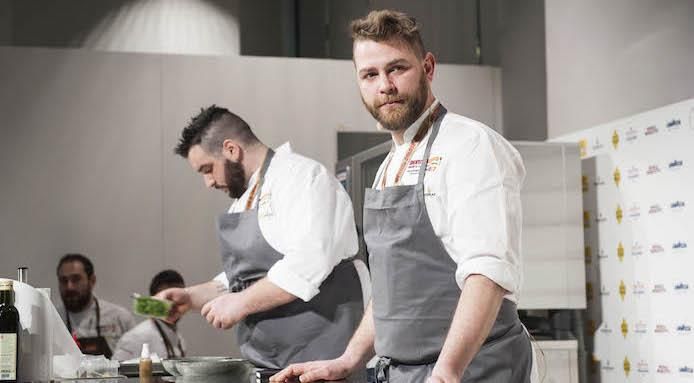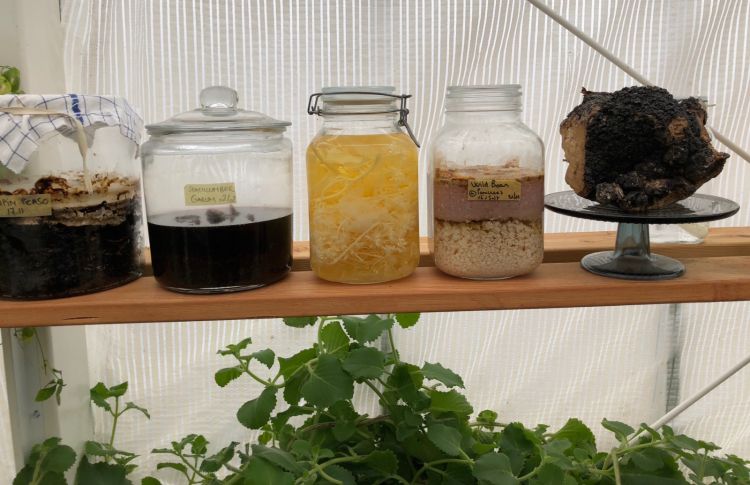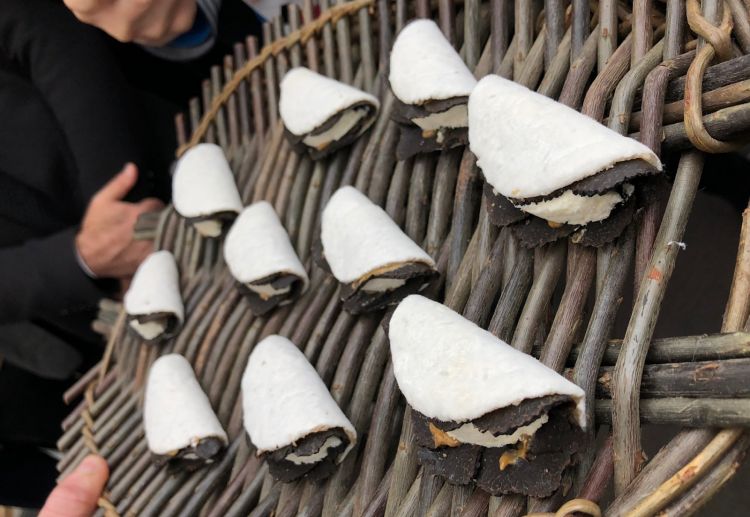A big event – among many important ones – at the Identità Milano 2020 congress, from the 7th to the 9th March at MiCo in Milan. On Sunday 8th of March at 4 p.m. in the Auditorium, the speakers will be David Zilber and Riccardo Canella. The former Canadian, the latter Italian, they’re two pillars at Noma in Copenhagen.
TO REGISTER FOR IDENTITÀ MILANO 2020, CLICK HERE AND FOLLOW THE INSTRUCTIONS
David Zilber is Canadian, from Toronto, Riccardo Canella is Venetian, from Mestrino (Padua). They were both born in 1985 and both work with Rene Redzepi since 2014. The former was hired after a trial of only two weeks, in the May of that year; the latter arrived as an intern soon after that, and soon also grew to become sous chef (which at Noma is the equivalent of a chef-de-partie as there are no real sous chefs here). Five years later, the former directs the Fermentation Lab; the Venetian is the vice-manager of the Test Kitchen. They have a crucial part, that is, in the development of the techniques and the transformation processes of the dishes we find in the menu of the Danish restaurant, number 2 in the World’s 50 Best.
On Sunday 8th of March, at 4 p.m., they will speak together on the stage of the Auditorium. For Canella this is the second speech in 3 years, for Zilber it’s a debut. A strong friendship unites them: «He’s one of the few colleagues», the Italian says, «with whom I share also some time outside the restaurant: art, music… We’ve very different in terms of sensitivity because he’s more of an intellectual – he reads 5 books each month, and I envy him for this – I’m a little more instinctive, I follow my guts. But we’re both passionate about beautiful things».
And they both shed hectolitres of elbow grease to get where they are now: «We started to become friends in 2015, during Noma’s pop-up season in Tokyo», he recalls, «at one moment when there was a real emergency at the restaurant. I lived 40km away from work, though, and it would take me two hours what with coming and going. So David invited me to stay in his room at the Mandarin Oriental, the location of the pop-up. Canadian Ben Ing [now executive chef at Noma] and the other Italian, Alessandro Proietti Refrigeri (who recently got a Michelin star at Villa Naj, in the Oltrepò region) were also there. I slept on the sofa, with my legs dangling. Those were memorable days, the prelude to my hiring. Once back in Copenhagen, I took David’s place in the service kitchen».

Zilber and Rene Redzepi. They are the authors of "The Noma Guide to Fermentation", best seller published by Artisan (photo Christopher Ho/KCRW)

Canella at Identità Golose in 2017 (photo Brambilla/Serrani)
In October 2017, after the other pop-up restaurant in Mexico, they go together on a trip to the South of France. They go to Grasse, the European capital of the perfume industry: «The focus was on the extraction of essential oils, a theme we’re both fascinated about. We were struck by the use of CO2 through a system designed in the Seventies which can isolate specific molecules from raw materials, for instance caffeine from coffee. Today David works at this, and we often discuss hypothesis and consequent results».
Zilber’s Fermentation Lab is twice far from the production of the dishes at Noma: he uses homogenizers, centrifuge extractors, Rotovap, saccharomyces and aspergillus oryzae, and prepares all sorts of fermentations. For Redzepi, we wrote it a few weeks ago, transforming food through the action of bacteria is the foundation of the cuisines of the past «but most of all of the future». It might well be, however, that the koji, kombucha, shoyu or garum that the Canadian develops daily are not convincing in terms of flavour, and are then kept in the cells of the lab. But they offer a unique view for the Test Kitchen coordinated by Danish Mette Søberg and by Canella. Which is, after all, the second step in the creative process, the precursor of each dish that has the luck of ending up in the tasting menu. A very low percentage: from Zilber’s point of view – and even from Canella’s, though less so – it is a naturally fierce Darwinian selection and a little frustrating too. But time brings ever growing satisfaction.

To follow the evolutions of the Noma Fermentation Lab there’s a nice account on Instagram: nomaferments

«During the lesson in Milan», Canella anticipates, «we will explain the steps in our shared creative process. David will present the most successful results of his fermentations (Zilber is co-author of “The Noma Guide to Fermentation”, published in Italy by Giunti, which soon became a best-seller), including a formidable tomato miso. I’m working on an idea of dry fermented pasta but it’s a work in progress, because I still need everything to work. I would like to express a more traditional idea. If I will ever recover after these days in Tokyo…».
The Paduan is bleeding himself dry while spending a few weeks in Tokyo: «We’re visiting Buddhist temples, vegan establishments, kaiseki and shojin riori, in search of inspiration for the next vegetal menu at Noma [which will launch in June]. I’m hypnotised by their sense of aesthetics and by the obsessive repetition of the same gesture, endless times. Everyday there’s an incredible restaurant to test». Zilber, instead, has just held a very successful lesson at the Università di Scienze Gastronomiche in Pollenzo. The subject: bacteria, acetic acid and yeast». Technical tests for the cuisine of the future.
TO REGISTER FOR IDENTITÀ MILANO 2020, CLICK HERE AND FOLLOW THE INSTRUCTIONS.
Translated into English by Slawka G. Scarso